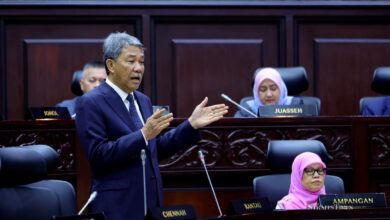Whose world is it anyway?

“THERE is one thing we must learn. This is one world and it is a world in which all must get along. And it is my opinion that this great republic will lead the way”.
These were the words of United States president Harry Truman in 1945 as captured by The Economist’s video clip. And so America did for a good 75 years.
But the global leadership has not always been good. If peace is absence of war, then the 7½ decades since the end of World War 2 have not been peaceful for most parts.
How could it be when the US leadership of the world has meant the shameless parcelling of this or that nation between America and its allies? Now that an ascendant China is extending its long arm to grab the global leadership crown, is a war inevitable?
Singapore’s Prime Minister Lee Hsien Loong had an answer for the nervous world as he spoke to the BBC on March 11: a clash between the US and China is more likely than it was five years ago.
There was a Lee qualifier, though: the odds of military conflict are “not yet high”. But he added an “if” just as quickly — if the US and China continue to take a hard line because of domestic considerations, they could easily find themselves at an impasse.
Or to frame this in geopolitical analyst Graham Allison’s question: Can America and China escape Thucydides’ Trap? Thucydides, considered to be a great Greek historian, was writing about the trap that the rising Athens and fearful incumbent Sparta fell into, making the 30-year Peloponnesian War inevitable. There is a problem though with such mixing of ancient history with contemporary geopolitics. It betrays its intent of preventing a war.
Allison has peddled the idea of Thucydides’ Trap in print and videos, so much so the hawks in the Pentagon and US Congress are actually preparing for war with China rather than seeking to prevent it. Peking may be doing the same.
There is a way out of this impasse, though. Both the US and China may want to revisit Truman’s idea of “one world in which all must get along”. There needn’t be an American century, as the US has been peddling to the world. There needn’t be an Asian century either. We must aim for a just world order, one based on the rule of law. Getting along doesn’t mean having one global leader.
Nations didn’t elect the US to lead the world. It just grabbed the crown for itself. Like the French King Louis XIV’s L’état, c’est moi (the state is mine), the US went global with its Le monde est à moi (the world is mine).
The shape and form of the United Nations, the main architect of which was the US, speaks volume of this unearned and unjust leadership. True, the US has set a bad example of global leadership. As bad as the European one in 1884, when 13 nations from the continent gathered in Berlin to shamelessly parcel out Africa.
None of the African nations were invited. China must not aspire to be another meddling European nation or America.
The world is in bad need of a just global leader. If China wants to be that, it must do much better than the US.
For now, as Lee puts it to the BBC, there is uncertainty and anxiety among nations big and small over which way China is going. Nst






You must be logged in to post a comment.